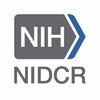Effects of Topical SLPI on Skin Wounds
Healthy, Wound Healing

About this trial
This is an interventional treatment trial for Healthy focused on measuring Elastase, Inflammation, Age, Gender, Cytokine, Healthy Volunteer
Eligibility Criteria
Healthy subjects will be used in the study to remove bias from associated pathology/comorbidity. Only Caucasian patients will be included. One group of male volunteers of 60-80 years of age will be used for the pilot study. There will be two groups for the main study: one male and one female group (age-matched equivalent groups). Females will be post-menopausal with the menarche at least 1 year previously and not taking hormone replacement therapy. No patients infected with Hepatitis B, C, non A/B virus or HIV. Pregnancy or lactating females will be excluded. Diabetic patients will be excluded. Patient must not be a smoker; or ex-smoker of greater than 5 per day for over one year. Patients must not be on any regular medication, for example: oral/topical/intra-articular corticosteroids, NSAIDSs, immunosuppressives, chemotherapeutic agents, anti-hypertensives, vasodilators, anti-arthritic agents (gold, azathioprine), antibiotics, and insulin/biguanides/sulphonylureas. Patients must not be taking oral contraceptive or HRT (oral or implant) (main study only). Patients must not have a history of cardiovascular disease, malignancy, stroke, inflammatory bowel disease, Alzheimer's disease, or pulmonary fibrosis/sarcoid/CAPD. Patients must not have presence of anemia, leukocytosis, bleeding disorder, or abnormal renal/liver function. Patients with known keloid former or previous evidence of hypertrophic scarring will be excluded. Patients with presence of skin disorders such as venous ulcers, psoriasis, eczema or lichen planus will be excluded.
Sites / Locations
- National Institute of Dental And Craniofacial Research (NIDCR)
Outcomes
Primary Outcome Measures
Secondary Outcome Measures
Full Information
1. Study Identification
2. Study Status
3. Sponsor/Collaborators
4. Oversight
5. Study Description
6. Conditions and Keywords
7. Study Design
8. Arms, Groups, and Interventions
10. Eligibility
12. IPD Sharing Statement
Learn more about this trial
